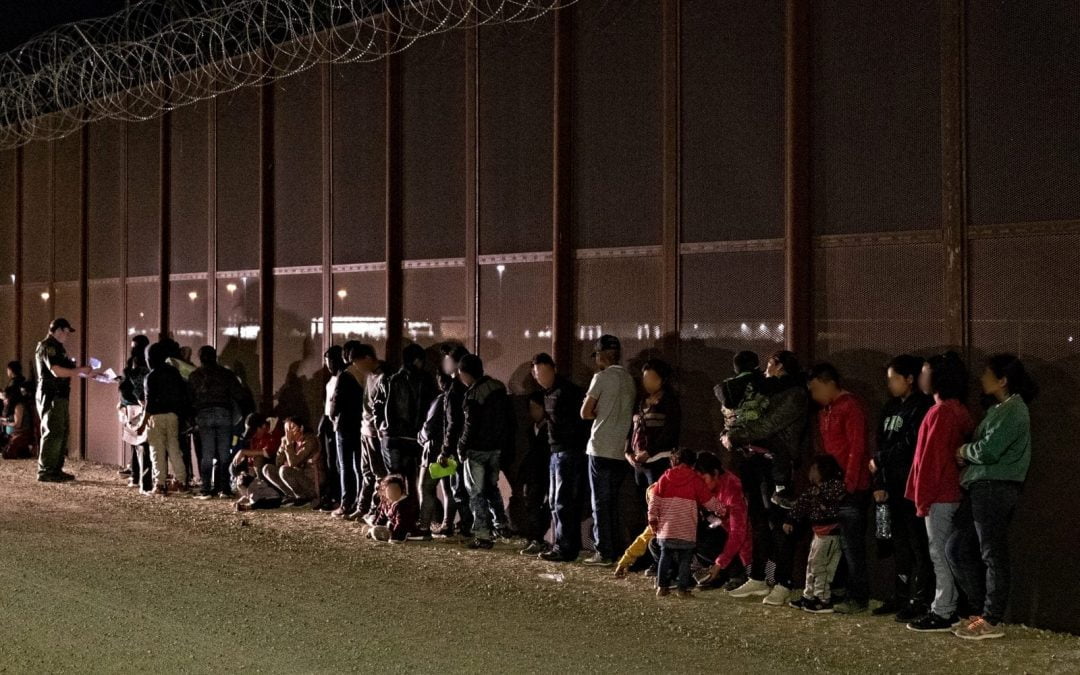People don’t choose lightly to flee their countries carrying only a few belongings in a backpack, with the knowledge that they may never see their families again.
It’s not an adventure, not a “the grass is greener on the other side” kind of thing, not a search for the American dream.
It’s a life-and-death decision.
During the Global Baptist Peace Conference held in July in Cali, Colombia, participants had the opportunity to delve deeper into issues from around the world, including that of forced migration.
I added new horror stories to those I had already heard from migrants and asylum-seekers:
- “They held a gun to the head of my 2-year-old son and told me I would pay protection money.”
- “I watched in horror as the two women beat an older woman almost to death. ‘You’re not getting out of here alive,’ they told me. ‘You know too much.’”
- “It was like a game of Russian roulette, with the gun pointed to my knees, my head … they watched and laughed as I pulled the trigger.”
- “They came into our house and grabbed my mom, held her hands behind her back and threatened us all. Either I would leave the community, or they would burn the house down while we were sleeping.”
- “There is no food, no medicine. Half the time, there’s no electricity. People with treatable medical conditions like diabetes or high blood pressure are dying. The really sick people don’t have a chance.”
- “Kids are a renewable commodity. People promise work, but they’re traffickers. They take them to work in the coca fields and kill them after a couple of weeks, go find new kids.”
We think, “But there are systems in place to prevent this, and people who want to help.”
“The police? They’re the ones who robbed me!” a Venezuelan pastor said.
And the church? A young indigenous woman from Guatemala said that because of her sexual preference, her church “called me evil and told me to leave and never come back.”
When we think about factors that cause people to migrate, most of us don’t have a clue what life is like outside our place of relative safety, wealth and privilege.
In the U.S., we’ve often understood migration as the search for the American dream. But migration occurs today because of a quest for survival.
Over 50% of recent Central American migrants are female.
Given the strong Latino value for family unity and connectedness, what conditions must exist to cause a woman to flee, to leave behind home, the place where she has grown up, where her ancestors are buried? For women to leave behind their mothers and grandmothers and even sons and daughters?
Women are fleeing an evolving market system where there are few jobs but a greater demand for a cash economy in rural communities; a cultural climate of patriarchy and machismo; and a state that fails to protect women and their children from exploitation, violence and death.
Rates of femicide are on the rise, and women are vulnerable. Even when laws exist to protect women, rates of conviction for crimes against women in many Latin American countries are low.
Men, too, are fleeing for survival. Farmers face increasing instability in weather conditions that lead to failed crops and financial ruin.
No harvest means no food, no money for education, and there are no local options for obtaining work. Thus, migration is forced due to both climatic and economic conditions.
The state has not been able to control gang violence, and boys and young men living in poverty have few options.
Their choices may be to join a gang in an attempt to avoid violence, to migrate or to risk death at the hands of the gang for resistance.
Women and girls are also at risk of gang violence. When a young girl rejects a boy with gang connections, there are repercussions, and a threat of violence or death may extend to the entire family.
Politics and national or international intervention (or lack thereof) also play a part in forced migration issues.
While desperate Venezuelan migrants enter into Colombia and are provided options for legal entry and transit to another country, Honduran migrants are met by a military presence at its closed border and not allowed to leave.
The U.S. continues to exert its power and control throughout the region but refuses to acknowledge the legitimacy of forced migration.
The bright spot in the Global Baptist Peace Conference was the fact that nearly 400 Christians, mostly Baptists, had gathered from around the world to network, learn from each other, pray and worship together and to be challenged to continue in the struggle for justice and peace.
Churches across the Americas are stepping up to address the migration crisis that is happening.
From the Catholic-run migrant shelters across Mexico to the Chilean Baptist initiative to provide shoes to Venezuelan families, they’re putting faith into action to show God’s love to “the least of these.”
Cooperative Baptist Fellowship field personnel working with LUCHA Ministries in Fredericksburg, Virginia. Sue and her husband, Greg, are also part of CBF’s Advocacy Action Team for Immigrants and Refugees.


